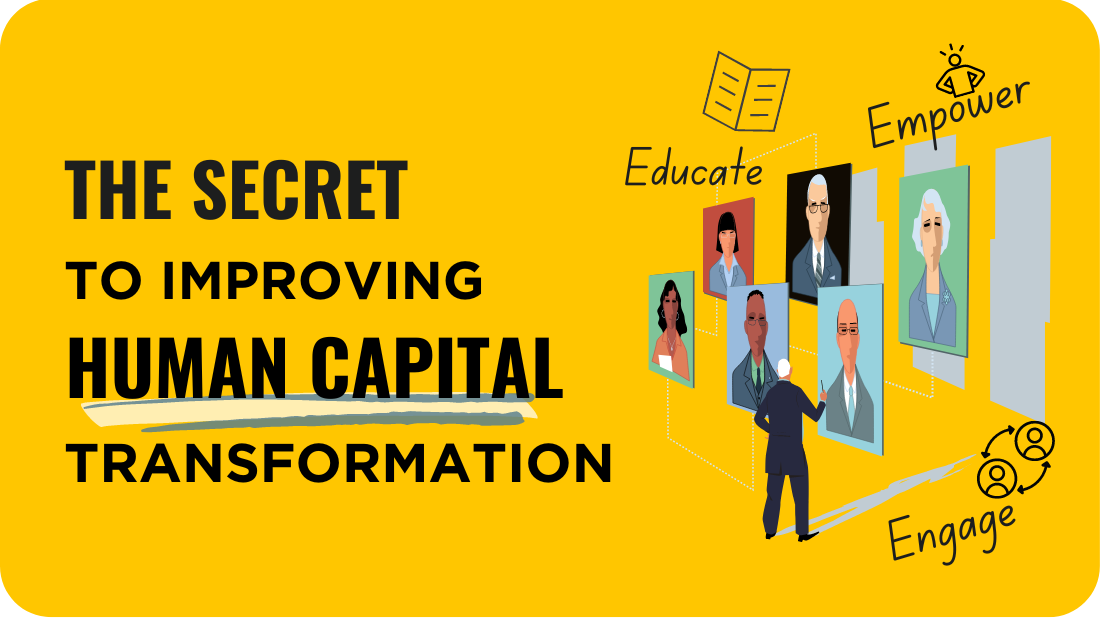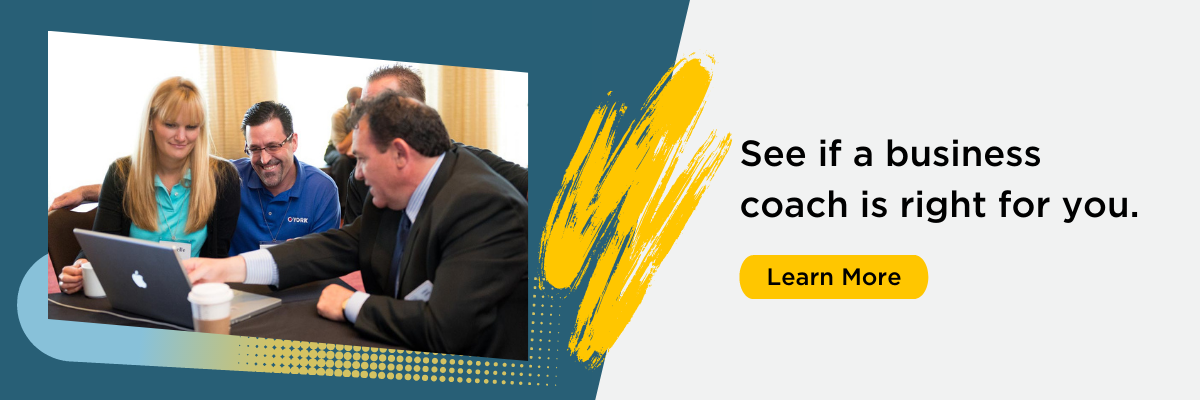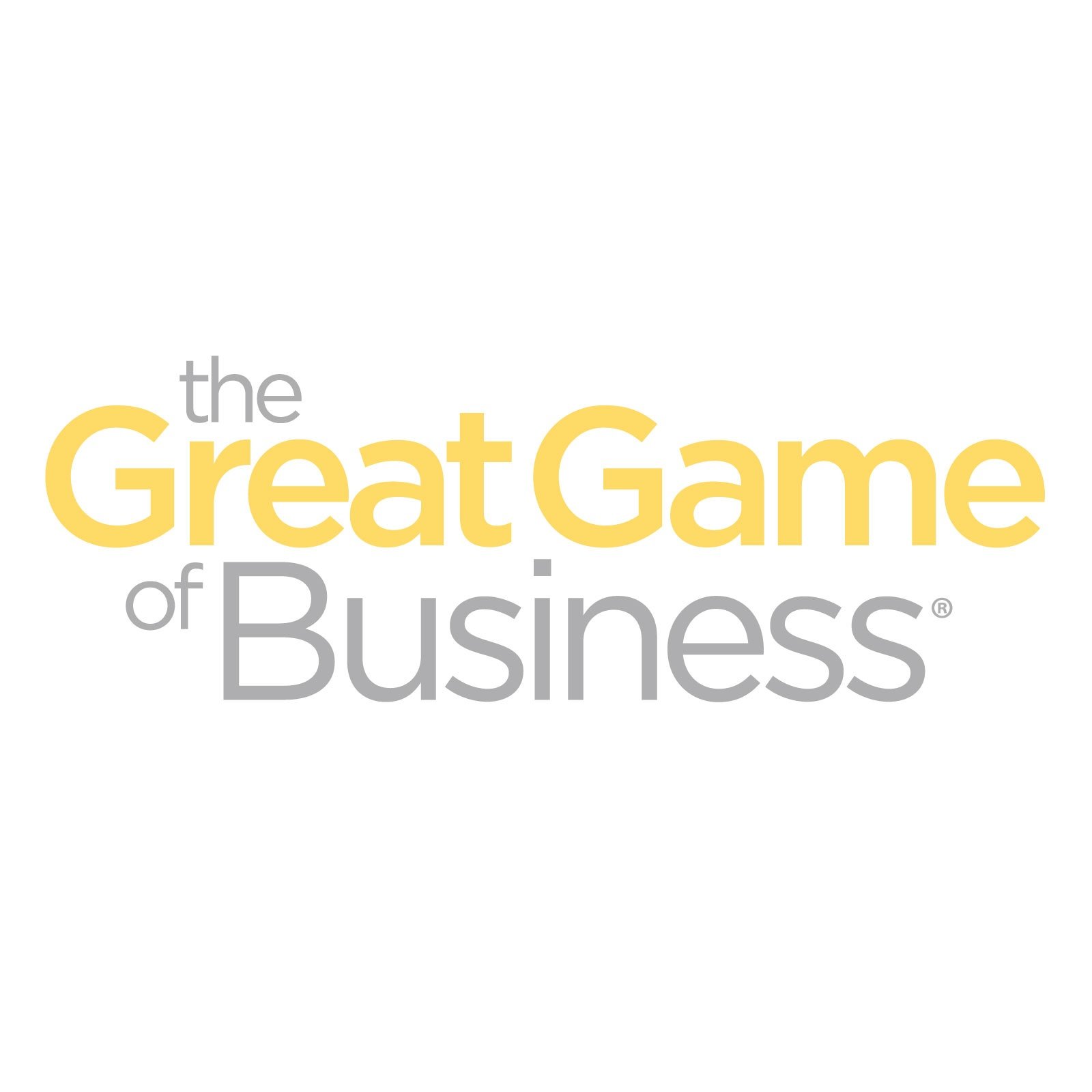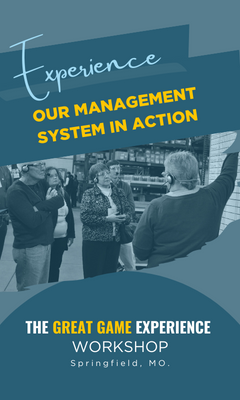
People are your greatest asset — regardless of the company or industry, they make things happen. That's why nurturing your human capital cannot be emphasized enough.
Human capital transformation helps companies better “define, structure, and realize their human capital management strategy” by focusing on what the company can do for its employees, according to Deloitte.
This approach is used to realize employee management strategies like information transparency, performance-based rewards, or instilling employees with a vision for the company’s future.
The Great Game of Business helps companies build a culture and operational model that can radically transform human capital.
In today’s post, we’ll show you exactly how Great Game™ positively impacts human capital transformation.
How Does Great Game™ Methodology Impact
Human Capital?
It starts here:
● Educate employees to think like owners.
● Empower them to make decisions on the company's trajectory.
● Engage them with competitive games (inter-departmental competitions, productivity scoreboards, MiniGames™, and more).
It's a simple, effective framework proven to garner massive results not just for
employees' personal happiness, but for a business’s bottom line.
Before we go deeper into the subject, let’s define some concepts of human capital.
Three Characteristics of Human Capital Transformation
● Leaders, managers, and employees work together to create and deliver
effective people-centered programs that uplift employee experiences.
● Organizational processes and technologies work harmoniously in a way that
maximizes results for a business. HR is also pulled into the loop, no longer
existing in an isolated silo.
● All processes internal to the organization are completed at minimal cost and
serve to further the company’s overall objectives.
The Challenges to Human Capital Transformation
Companies and their HR departments should be aware of the roadblocks that get in
the way of growing and investing in employees.
Because The Great Game of Business focuses on transparency and streamlined collaboration across departments, most roadblocks no longer apply.
Nonetheless, to prevent roadblocks from occurring, it's important to ask the
following questions:
● What are some ways to leverage technologies and processes in a way to help
your employees succeed?
● How do you ensure the work culture is employee-first and motivates top
performers?
● Do you have the resources and process in place to engage employees from
the moment they onboard to years down the line?
● Does your company have methods for bolstering organizational resilience and
managing market change?
Here's Why it Matters
Everything from company culture to internal workflow systems and procedures
heavily impact employee well-being, along with your ability to effectively harness the
talent in your workforce.
Transforming your organization’s approach to employee management requires you
to identify and meet the deep human needs of your workforce. This is something
that Great Game™ does intrinsically.
The easiest way to go about it is by evolving your company’s culture from the top
down. Make changes to your entire organization’s framework (ie. gamifying your
business).
Many psychological needs are satisfied by empowering, educating, and engaging
your workforce.
Common workplace psychological needs include:
● Autonomy (empowered to take ownership of their work/role)
● Competence (the right knowledge and training to do the job)
● Relatedness (social connection to others through common goals)
Five Elements of Human Capital
According to research done in the field of organizational psychology, five elements
comprise human capital.
● Skills, Qualifications, and Education
● Work Experience
● Social and Communication Skills
● Habits and Personality Traits
● Individual Fame and Brand Image
The Great Game methodology directly impacts these elements.
How The Game™ Addresses Worker Needs
Skills, Qualifications, Education, and Work Experience. Huddles are departmental
meetings where business strategy and goals are discussed and broken down into
actionable items for each team.
The Huddle is where employees can learn new skills that relate to their role and
break down interdepartmental silos that could bottleneck communications.
Not only that, employees learn more about business management and the related
life skills associated with it (bookkeeping, budgeting, contingency planning, etc.)
Habits. There's a bleed-over effect when you teach employees the basics of running
a business, from budgeting and accounting to contingency planning.
Many employees apply these lessons to their personal finances, establishing
healthier habits which, in turn, make for better workplace performance.
Individual fame. Having the best employees, each dedicated and motivated to win
“the Game,” increases a company’s reputation due to delivering better quality service
and reaping more profitability.
The Great Game of Business Bolsters Human Capital Across Your Entire Organization
According to a Deloitte study, over a quarter of companies didn’t have preparedness
plans or strategies in place before the pandemic.
As of today, approximately 4% of them do not have a plan.
This is a recipe for instability. And a clear sign that companies are not making full use
of their human capital.
What’s the solution?
Playing the Game empowers employees to think and act like business owners, which
strengthens the framework of the entire organization.
Workers are taught to come up with ideas for workflow procedures and contingency
plans for a variety of worst-case scenarios.
Educating your employees on company financials and collaborating with them to
create strategic backup plans and internal processes for your company is the key to
success.
How is it actualized?
High-Involvement Planning™. It’s a company-wide collaborative endeavor that aims
to discover answers to organizational weaknesses or roadblocks. It’s one of the best
ways to empower organizational growth.
Contingency Planning. Yet another way to sure-up security across your organization
and provide employees with comfort and assurance. Our coaches will teach you how
to lead a proper planning session and get your employees engaged and integrated
during the process.
Open-Book Management. It’s not just reporting the profit-loss statements to
employees. You don’t show everything, just enough to get them motivated and on
board to fulfill their roles at their highest capacity.
The financial transparency offered by OBM helps to paint a clear picture of what
changes employees must make before company goals can be met and
profits/rewards can be shared.
Why Does it Work?
Simply put: Tearing down the barriers between CEO/owner and employee creates
more transparency, collaboration, and creative interchange, while enhancing trust
and opening the doors to new insights on company processes.
Companies that play The Game™ create a tighter, more cohesive workforce. This
transformation is thanks to positive incentive structures (bonuses and rewards) and
competitive MiniGames™.
-1.png?width=70&height=70&name=Coachs%20Tip%20Chat%20Bubble%20(1)-1.png) Read More: How Great Game Changed Our Company Culture
Read More: How Great Game Changed Our Company Culture
Are You Ready to Play The Game™ and Transform Your Organization?
Contact one of our friendly over-the-phone coaches to start your free consultation
today!
.png)








.png)




-5.png)

